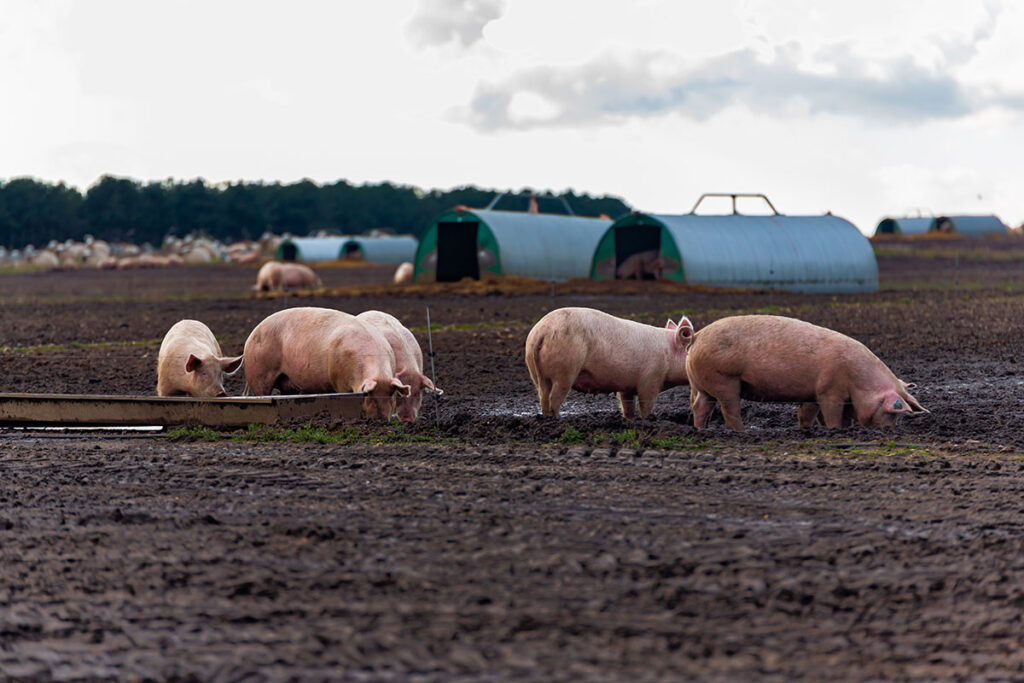Nearly £1 million of public money has been paid to a pig farmer to stop rearing pigs to enable 1,400 new homes to be built in Norfolk, according to reports.
The controversial deal, which first hit the headlines almost a year ago, means farmer James Daniels is no longer permitted to farm pigs on his land near Caistor St Edmund.
Council bosses have now confirmed that they stood by the deal, the first of its kind in the country, the Eastern Daily Press reports.
Mr Daniels was paid to abandon pigs on that bit of land by Norfolk Environmental Credits (NEC) – a collaboration between Breckland Council, Broadland District Council, North Norfolk Council and South Norfolk Council.
The deal was hatched because the pigs on the farmland, either side of the A47 bypass to the south of Norwich, were creating harmful nutrients that were running into the Tas and Yare rivers, it is reported. Closing it down enabled the sale of credits to developers who needed to provide environmental mitigation for their housing schemes, under nutrient neutrality rules.
Council officers said that led to credit sales at more than 100 sites where housing was proposed, which meant councils could grant permission for 1,375 homes, EDP reported.
Quick win
Phil Courtier, director of place at Broadland and South Norfolk councils, and a board member on NEC, said: “I stand by that scheme. We saw it as a quick win, but we did not want to replicate that elsewhere.”
He told Farmers Weekly advice from NE had left local authorities in a position where 16,000 planned homes could not be built, and the farm deal was a ‘quick and easy’ way to ensure some would get the go-ahead.
“That site was prime because it was on sloping land, with the River Tas on one side and the River Yare on the other. So many nutrients from that pig farm were going into the watercourses,” he said.
“We had a number of small- and medium-sized builders who were on the verge of bankruptcy who are not bankrupt because they were able to buy credits arising from the cessation of pig farming on this relatively small holding.”
Mr Courtier said he was aware of concerns that nutrient neutrality payments could affect food production, but said the councils involved in the deal had no plans to strike other deals, despite several offers from landowners.
“I don’t want to suddenly be in a process where we have large-scale change of use of land away from agricultural purposes, not least because of the food security issue,” he added.




